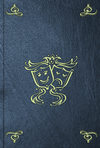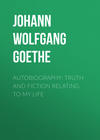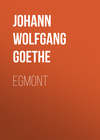Loe raamatut: «Letters from Switzerland and Travels in Italy», lehekülg 2
Studies of the nude
When my artistic friend became better acquainted with me, and judged me worthy of being gradually introduced to better pieces of art, he one day, not without a most mysterious look, took me to a case, which, being opened, displayed a Danæ, of the size of life, receiving in her bosom the golden shower. I was amazed at the splendour of the limbs – the magnificence of the posture and arrangement – the intense tenderness and the intellectuality of the sensual subject; and yet I did but stand before it in silent contemplation. It did not excite in me that rapture, that delight, that inexpressible pleasure. My friend, who went on descanting upon the merits of the picture, was too full of his own enthusiasm to notice my coldness, and was delighted with the opportunity this painting afforded him of pointing out the distinctive excellences of the Italian School.
But the sight of this picture has not made me happy – it has made me uneasy. How! said I to myself – in what a strange case do we civilized men find ourselves with our many conventional restraints! A mossy rock, a waterfall rivets my eye so long that I can tell everything about it – its heights, its cavities, its lights and shades, its hues, its blending tints and reflections – all is distinctly present to my mind; and whenever I please, comes vividly before me, in a most happy imitation. But of that masterpiece of Nature, the human frame – of the order and symmetry of the limbs, of all this I have but a very general notion – which in fact is no notion at all. My imagination presents to me anything but a vivid image of this glorious structure, and when art presents an imitation of it, to my eye it awakens in me no sensation and I am unable to judge of the merits of the picture. No, I will remain no longer in this state of stupidity. I will stamp on my mind the shape of man, as well as that of a cluster of grapes or of a peach-tree.
I sought an occasion and got Ferdinand to take a swim in the lake. What a glorious shape has my friend; how duly proportioned are all his limbs: what fulness of form; what splendour of youth! What a gain to have enriched my imagination with this perfect model of manhood! Now I can people the woods, the meadow, and the hills, with similar fine forms! I can see him as Adonis chasing the boar, or as Narcissus contemplating himself in the mirror of the spring.
But alas! my imagination cannot furnish, as yet, a Venus, who holds him from the chace, a Venus who bewails his death, or a beautiful Echo casting one sad look more on the cold corpse of the youth before she vanishes for ever! I have therefore resolved, cost what it will, to see a female form in the state that I have seen my friend.
When, therefore, we reached Geneva, I made arrangements in the character of an artist to complete my studies of the nude figure, and to-morrow evening my wish is to be gratified.
I cannot avoid going to-day with Ferdinand to a grand party. It will form an excellent foil to the studies of this evening. Well enough do I know those formal parties where the old women require you to play at cards with them, and the young ones to ogle with them; where you must listen to the learned, pay respect to the parson, and give way to the noble, where the numerous lights show you scarcely one tolerable form, and that one hidden and buried beneath some barbarous load of frippery. I shall have to speak French, too, – a foreign tongue – the use of which always makes a man appear silly, whatever he may think of himself, since the best he can express in it is nothing but common place, and the most obvious of remarks, and that, too, only with stammering and hesitating lips. For what is it that distinguishes the blockhead from the really clever man but the peculiar quickness and vividness with which the latter discerns the nicer shades and proprieties of all that come before him, and expresses himself thereon with facility; whereas the former, (just as we all do with a foreign language,) is forced on every occasion to have recourse to some ready found and conversational phrase or other? To-day I will calmly put up with the sorry entertainment, in expectation of the rare scene of nature which awaits me in the evening.
My adventure is over. It has fully equalled my expectation – nay, surpassed it; and yet I know not whether to congratulate, or to blame myself on account of it.
PART THE SECOND
Munster, October 3, 1797.
From Basle you will receive a packet containing an account of my travels up to that point, for we are now continuing in good earnest our tours through Switzerland. On our route to Biel we rode up the beautiful valley of the Birsch, and at last reached the pass which leads to this place.
The valley of the Birsch
Among the ridges of the broad and lofty range of mountains the little stream of the Birsch found of old a channel for itself. Necessity soon after may have driven men to clamber wearily and painfully through its gorges. The Romans in their time enlarged the track, and now you may travel through it with perfect ease. The stream, dashing over crags and rocks, and the road run side by side, and except at a few points, these make up the whole breadth of the pass which is hemmed in by rocks, the top of which is easily reached by the eye. Behind them the mountain chain rose with a slight inclination; the summits, however, were veiled by a mist.
Here walls of rock rise precipitously one above another; there immense strata run obliquely down to the river and the road-here again broad masses lie piled one over another, while close beside stands a line of sharp-pointed crags. Wide clefts run yawning upwards, and blocks, of the size of a wall, have detached themselves from the rest of the stony mass. Some fragments of the rock have rolled to the bottom; others are still suspended, and by their position alarm you, as also likely at any moment to come toppling down.
Now round, now pointed, now overgrown, now bare are the tops of these rocks among and high above which some single bald summit boldly towers, while along the perpendicular cliffs and among the hollows below, the weather has worn many a deep and winding cranny.
The passage through this defile raised in me a grand but calm emotion. The sublime produces a beautiful calmness in the soul which entirely possessed by it, feels as great as it ever can feel. How glorious is such a pure feeling, when it rises to the very highest, without overflowing. My eye and my soul were both able to take in the objects before me, and as I was pre-occupied by nothing, and had no false tastes to counteract their impression, they had on me their full and natural effect. When we compare such a feeling with that we are sensible of, when we laboriously harass ourselves with some trifle, and strain every nerve to gain as much as possible for it, and as it were, to patch it out, striving to furnish joy and aliment to the mind from its own creation; we then feel sensibly what a poor expedient, after all, the latter is.
A young man, whom we have had for our companion from Basle, said his feelings were very far from what they were on his first visit, and gave all the honour to novelty. I however would say, when we see such objects as these for the first time, the unaccustomed soul has to expand itself, and this gives rise to a sort of painful joy – an overflowing of emotion which agitates the mind, and draws from us the most delicious tears. By this operation the soul, without knowing it, becomes greater in itself, and is of course not capable of ever feeling again such a sensation, and man thinks in consequence that he has lost something, whereas in fact he has gained. What he loses in delight he gains in inward riches. If only destiny had bidden me to dwell in the midst of some grand scenery, then would I every morning have imbibed greatness from its grandeur, as from a lonely valley I would extract patience and repose.
After reaching the end of the gorge I alighted, and went back alone through a part of the valley. I thus called forth another profound feeling – one by which the attentive mind may expand its joys to a high degree. One guesses in the dark about the origin and existence of these singular forms. It may have happened, when and how it may, – these masses must, according to the laws of gravity and affinity, have been formed grandly and simply by aggregation. Whatever revolutions may subsequently have upheaved, rent and divided them, the latter were only partial convulsions, and even the idea of such mighty commotions gives one a deep feeling of the eternal stability of the masses. Time, too, bound by the everlasting law, has had here greater, here less, effect upon them.
Internally their colour appears to be yellowish. The air, however, and the weather has changed the surface into a bluish-grey, so that the original colour is only visible here and there in streaks and in the fresh cracks. The stone itself slowly crumbles beneath the influence of the weather, becoming rounded at the edges, as the softer flakes wear away. In this manner have been formed hollows and cavities gracefully shelving off, which when they have sharp slanting and pointed edges, present a singular appearance.
Vegetation maintains its rights on every ledge, on every flat surface, for in every fissure the pines strike root, and the mosses and plants spread themselves over the rocks. One feels deeply convinced that here there is nothing accidental; that here there is working an eternal law which, however slowly, yet surely governs the universe, – that there is nothing here from the hand of man but the convenient road, by means of which this singular region is traversed.
Geneva, October 27, 1779.
La Vallée de Joux
The great mountain-range which, running from Basle to Geneva, divides Switzerland from France, is, as you are aware, named the Jura. Its principal heights run by Lausanne, and reach as far as Rolle and Nyon. In the midst of this summit ridge Nature has cut out – I might almost say washed out – a remarkable valley, for on the tops of all these limestone rocks the operation of the primal waters is manifest. It is called La Vallée de Joux, which means the Valley of the Rock, since Joux in the local dialect signifies a rock. Before I proceed with the further description of our journey, I will give you a brief geographical account of its situation. Lengthwise it stretches like the mountain range itself almost directly from south to north, and is locked in on the one side by Sept Moncels, and on the other by Dent de Vaulion, which, after the Dole, is the highest peak of the Jura. Its length, according to the statement of the neighbourhood, is nine short leagues, but according to our rough reckoning as we rode through it, six good leagues. The mountainous ridge which bounds it lengthwise on the north, and is also visible from the flat lands, is called the Black Mountain (Le Noir Mont). Towards the west the Risou rises gradually, and slopes away towards Franche Comté. France and Berne divide the valley pretty evenly between them; the former claiming the upper and inferior half, and the latter possessing the lower and better portion, which is properly called La Vallée du Lac de Joux. Quite at the upper part of the valley, and at the foot of Sept Moncels, lies the Lac des Rousses, which has no single visible origin, but gathers its waters from the numerous springs which here gush out of the soil, and from the little brooks which run into the lake from all sides. Out of it flows the Orbe, which after running through the whole of the French, and a great portion of the Bernese territory, forms lower down, and towards the Dent de Vaulion, the Lac de Joux, which falls on one side into a smaller lake, the waters of which have some subterraneous outlet. The breadth of the valley varies; above, near the Lac des Rousses it is nearly half a league, then it closes in to expand again presently, and to reach its greatest breath, which is nearly a league and a-half. So much to enable you better to understand what follows; while you read it, however, I would beg you now and then to cast a glance upon your map, although, so far as concerns this country, I have found them all to be incorrect.
October 24th. In company with a captain and an upper ranger of the forests in these parts, we rode first of all up Mont, a little scattered village, which much more correctly might be called a line of husbandmen's and vinedressers' cottages. The weather was extremely clear; when we turned to look behind us, we had a view of the Lake of Geneva, the mountains of Savoy and Valais, and could just catch Lausanne, and also, through a light mist, the country round Geneva, Mont Blanc, which towers above all the mountains of Faucigni, stood out more and more distinctly. It was a brilliant sunset, and the view was so grand, that no human eye was equal to it. The moon rose almost at the full, as we got continually higher. Through large pine forests we continued to ascend the Jura, and saw the lake in a mist, and in it the reflection of the moon. It became lighter and lighter. The road is a well-made causeway, though it was laid down merely for the sake of facilitating the transport of the timber to the plains below. We had been ascending for full three leagues before the road began gently to descend. We thought we saw below us a vast lake, for a thick mist filled the whole valley which we overlooked. Presently we came nearer to the mist, and observed a white bow which the moon formed in it, and were soon entirely enveloped in the fog. The company of the captain procured us lodgings in a house where strangers were not usually entertained. In its internal arrangement it differed in nothing from usual buildings of the same kind, except that the great room in the centre was at once the kitchen, the ante-room, and general gathering-place of the family, and from it you entered at once into the sleeping-rooms, which were either on the same floor with it, or had to be approached by steps. On the one side was the fire, which was burning on the ground on some stone slabs, while a chimney, built durably and neatly of planks, received and carried off the smoke. In the corner were the doors of the oven; all the rest of the floor was of wood, with the exception of a small piece near the window around the sink, which was paved. Moreover, all around, and over head on the beams a multitude of domestic articles and utensils were arranged in beautiful order, and all kept nice and clean.
October 26th.– This morning the weather was cold but clear, the meadows covered with hoar frost, and here and there light clouds were floating in the air. We could pretty nearly survey the whole of the lower valley, our house being situated at the foot of the eastern side of Noir Mont. About eight we set off, and in order to enjoy the sun fully, proceeded on the western side. The part of the valley we now traversed was divided into meadows, which, towards the lake were rather swampy. The inhabitants either dwell in detached houses built by the side of their farms, or else have gathered closer together in little villages, which bear simple names derived from their several sites. The first of those that we passed through was called "Le Sentier." We saw at a distance the Dent de Vaulion peeping out over a mist which rested on the lake. The valley grew broader, but our road now lay behind a ridge of rock which shut out our view of the lake, and then through another village called "Le Lieu." The mist arose, and fell off highly variegated by the sun. Close hereto is a small lake, which apparently has neither inlet nor outlet of its waters. The weather cleared up completely as we came to the foot of Dent de Vaulion, and reached the northern extremity of the great lake, which, as it turns westward, empties itself into a smaller by a dam beneath the bridge. The village just above is called "Le Pont." The situation of the smaller lake is what you may easily conceive, as being in a peculiar little valley which may be called pretty. At the western extremity there is a singular mill, built in a ravine of the rock which the smaller lake used formerly to fill. At present it is dammed out of the mill which is erected in the hollow below. The water is conveyed by sluices to the wheel, from which it falls into crannies of the rock, and being sucked in by them, does not show itself again till it reaches Valorbe, which is a full league off, where it again bears the name of the Orbe. These outlets (entonnoirs) require to be kept clear, otherwise the water would rise and again fill the ravine, and overflow the mill as it has often done already. We saw the people hard at work removing the worn pieces of the lime-stone and replacing them by others.
Dent de Vaulion
We rode back again over the bridge towards "Le Pont," and took a guide for the Dent du Vaulion. In ascending it we now had the great Lake directly behind us. To the east its boundary is the Noir Mont, behind which the bald peak of the Dole rises up; to the west it is shut in by the mountain ridge, which on the side of the lake is perfectly bare. The sun felt hot: it was between eleven and twelve o'clock. By degrees we gained a sight of the whole valley, and were able to discern in the distance the "Lac des Rousses," and then stretching to our feet the district we had just ridden through and the road which remained for our return. During the ascent my guide discoursed of the whole range of the country and the lordships which, he said, it was possible to distinguish from the peak. In the midst of such talk we reached the summit. But a very different spectacle was prepared for us. Under a bright and clear sky nothing was visible but the high mountain chain, all the lower regions were covered with a white sea of cloudy mist, which stretched from Geneva northwards, along the horizon and glittered brilliantly in the sunshine. Out of it, rose to the east, the whole line of snow and ice-capt mountains acknowledging no distinction of names of either the Princes or Peoples, who fancied they were owners of them, and owning subjection only to one Lord, and to the glance of the Sun which was tinging them with a beautiful red. Mont Blanc, right opposite to us, seemed the highest, next to it were the ice-crowned summits of Valais and Oberland, and lastly, came the lower mountains of the Canton of Berne. Towards the west, the sea of mist which was unconfined to one spot; on the left, in the remotest distance, appeared the mountains of Solothurn; somewhat nearer those of Neufchatel, and right before us some of the lower heights of the Jura. Just below, lay some of the masses of the Vaulion, to which belongs the Dent, (tooth) which takes from it its name. To the west, Franche-Comté, with its flat, outstretched and wood-covered hills, shut in the whole horizon; in the distance, towards the north-west, one single mass stood out distinct from all the rest. Straight before us, however, was a beautiful object. This was the peak which gives this summit the name of a tooth. It descends precipitously, or rather with a slight curve, inwards, and in the bottom it is succeeded by a small valley of pine-trees, with beautiful grassy patches here and there, while right beyond it lies the valley of the Orbe (Val-orbe), where you see this stream coming out of the rock, and can trace, in thought, its route backwards to the smaller lake. The little town of Valorbe, also lies in this valley. Most reluctantly we quitted the spot. A delay of a few hours longer, (for the mist generally disperses in about that time), would have enabled us to distinguish the low lands with the lake – but in order that our enjoyment should be perfect, we must always have something behind still to be wished. As we descended we had the whole valley lying perfectly distinct before us. At Le Pont we again mounted our horses, and rode to the east side of the lake, and passed through l'Abbaye de Joux, which at present is a village, but once was a settlement of monks, to whom the whole valley belonged. Towards four, we reached our auberge and found our meal ready, of which we were assured by our hostess that at twelve o'clock it would have been good eating, and which, overdone as it was, tasted excellently.



















